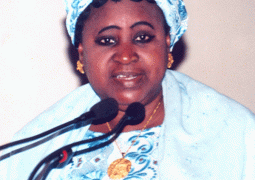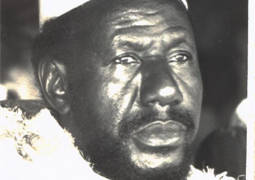The other items includeda mobile X-ray machine, an automatic X-ray film processor, manual chemical mixer, X-ray viewing boxes, safe light, a chest X-ray stand (X-ray cassette holder), X-ray film hangers and X-ray protective aprons with a combined worth of over D1 million.
The MRC, established in 1947, has contributed immensely toward the health improvement of the Gambia’s population.
The hospital, established since 1936, is regarded as the second largest hospital in the nation, and continues to serve about 200,000 people.
In his remarks, Bansang Alkalo Kebba Kora described MRC as one of the oldest and longest serving research institutions in The Gambia and Africa at large.
He also described MRC as a unique institution, due to its vibrant administration.
Decades ago, MRC’s work was only felt in the Greater Banjul Area, but it has expanded to the interior.
Mr Kora assured MRC of the availability of land for the establishment of a centre, while he thanked the institution for the gesture.
The CEO Bansang Hospital, Baba Jeng, welcomed the donated items, which he said were needed by the hospital.
The equipment used during the pneumococcal surveillance project (PSP) continued to register MRC’s support, he said, adding that MRC has provided support in the areas of capacity building, drugs, patient care, and for the maintenance and running cost of some of the equipment donated by them.
The Director of operations at MRC Fajara, Dr Joan Vives Thomas, said the occasion marked a moment of sharing resources to improving the health of the Gambia population, and the most significant thing is that “we are working and advancing together.
The head of operations, MRC-Basse field station, Pa Chebu Saine, described their collaboration with Bansang Hospital, as well as the government health sector as a fruitful longstanding and mutually beneficial one.
He said MRC has been conducting research in URR and CRR for over 33 years, resulting in several crucial findings that have translated to very important health interventions, especially for children.
According to him, the MRC conducts research to provide solutions to health problems and the hospital delivers health services, adding that these are intricately-linked complementary functions.
“MRC’s work in Bansang does not end with the PSP; disease surveillance continues and we are soon commencing a new project that will work in URR and CRR, including Bansang Hospital,” Saine announced.
He further disclosed that the Vaccine Impact on Diarrhea in Africa (VIDA) is conducting a study on diarrhea in children to determine the effectiveness of the recently introduced rotavirus vaccine, a project which would start in March this year to run for three years in both CRR and URR.




